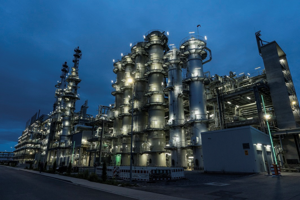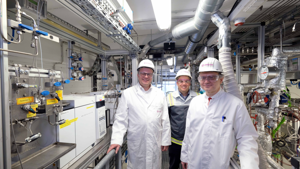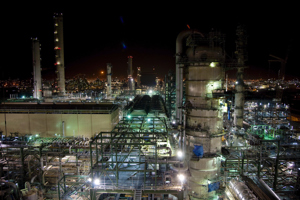The Downstream Rundown: In case you missed it 09/16
In case you missed any downstream news, here are the top stories from last week
Clariant signs definitive agreement to sell Quats business
Clariant, a focused, sustainable, and innovative specialty chemical company, announced that it has reached a definitive agreement for the divestment of its Quats business to Global Amines Company Pte. Ltd., a 50/50 joint venture owned by Clariant and Wilmar, Asia’s leading agricultural business and oleochemicals business globally.
Aemetis, Inc., a renewable fuels company focused on negative carbon intensity products, reported that the engineering work completed during the past year by CTCI for the Aemetis Riverbank Carbon Zero sustainable aviation fuel and renewable diesel plant is on schedule for filing permits and conducting procurement commencing in Q4 2022.
In October 2021, Aemetis announced that it had entered into an agreement with engineering and construction firm CTCI Americas to conduct permitting and engineering work for the Carbon Zero renewable jet and diesel plant to be built in Riverbank, California. CTCI Americas is a subsidiary of $2.3 B revenues CTCI Corp., a global engineering, procurement and construction (EPC) firm with extensive technology and energy industry project engineering and construction experience in California.
RGGI carbon dioxide emissions price reached new quarterly record in June 2022
The 56th Regional Greenhouse Gas Initiative (RGGI) quarterly auction, held June 1, 2022, resulted in a record-high clearing price of $13.90 per ton for CO2 emissions allowances, surpassing the previous quarter’s clearing price ($13.50 per ton) by 3% and the June 2021 clearing price ($7.97 per ton) by 74%. Allowance prices set in the RGGI auctions have been increasing since the June 2017 auction, which cleared at $2.53 per ton.
RGGI is a cooperative agreement among 11 U.S. states to reduce CO2 emissions from power plants; it was the first program in the country to place a cap on power sector CO2 emissions. In RGGI states, regulated power plants are required to purchase one RGGI CO2 allowance for every short ton of CO2 they emit. Emissions allowance prices are influenced by several factors, such as the predefined limit on allowable emissions, the number of participants in the market, and energy prices.
Evonik and LIKAT discover new type of hydroformylation
A research team involving Evonik and the Leibniz Institute for Catalysis (LIKAT), has made another breakthrough in the field of hydroformylation. Hydroformylation is one of the most important reactions in industrial organic chemistry. Unsaturated compounds are converted into aldehydes and alcohols using synthesis gas.
ISCC and Circularise pilot blockchain technology with 10 companies including Neste
Circularise announced a pioneering joint project with the certification scheme ISCC, material suppliers Neste, Asahi Kasei, Borealis, Trinseo and Shell, original equipment manufacturers (OEMs), brands Arcelik, Philips Domestic Appliances and EVBox, as well as trading companies Marubeni and Itochu, in which partners tested a blockchain system to complement the ISCC Plus certification. These parties were brought together by Circularise and Marubeni. This is the first time that 10 chemical industry players and appliance companies got together to test a blockchain-based digital system as a complement to a sustainability certification process of complex value chains.
Carbon intensity of U.S. power generation continues to fall but varies widely by state
From 2016 to 2020, the carbon intensity of U.S. power generation fell 18%, driven by a shift in the U.S. electricity generation mix away from coal and toward natural gas and renewables. The carbon intensity of power generation measures the amount of CO2 emitted to produce a unit of electricity. All but seven U.S. states decreased their carbon intensity over that five-year period, although the amount of the decrease varied widely.
In 2020, the carbon intensity of U.S. power generation averaged 854 pounds of CO2 per megawatthour (lbs of CO2/MWh), but carbon intensity varies by energy source. In 2020, the carbon intensity of coal in the United States was 2,274 lbs of CO2/MWh. Natural gas was less carbon intensive than coal at 980 lbs of CO2/MWh. Nuclear power plants and non-emitting renewables, such as hydroelectric, wind, and solar power, produce little to no CO2 emissions.
ADNOC Refining to complete first phase of waste heat recovery project
ADNOC Refining, a joint venture company between the Abu Dhabi National Oil Company (ADNOC), Eni, and OMV, is set to complete the first phase of its innovative Waste Heat Recovery project at the General Utilities Plant in Ruwais, Abu Dhabi.
ADNOC produces some of the world’s least-carbon intensive crude and the company is further reducing its greenhouse gas (GHG) emissions intensity by 25% by 2030, aligned to the UAE Net Zero by 2050 Strategic Initiative.
APChemi's patented “Pyromax” pyrolysis technology for recycling plastic waste closes the gap in the plastic supply chain by taking dirty and mixed plastic waste, including municipal solid waste segregated plastics and multilayer packaging, and breaking it down to produce high quality pyrolysis oil which can be chemically recycled into circular plastics. The process has a lower carbon footprint, as it displaces the need for crude-oil-based feedstocks for plastics manufacturing, while reducing the need for intensive plastic waste sorting.
Mitsui Chemicals selects ethylene oxide catalyst from Shell Catalysts & Technologies
Mitsui Chemicals has asked Shell Catalysts & Technologies for its Shell S-896 catalyst, which is expected to provide important economic benefits from raw material (ethylene) savings and also help the organization meet the decarbonization goals for their ethylene oxide (EO) refinery in Osaka, Japan. This announcement builds on more than two decades of work between the two organizations.
Shell Chief Executive Officer Ben van Beurden to step down, Wael Sawan appointed as his successor
Shell announced that Ben van Beurden will step down as Chief Executive Officer (CEO) at the end of 2022, and that his successor will be Wael Sawan. Wael’s appointment is effective January 1, 2023, when he will also join Shell’s Board of Directors. Ben van Beurden will continue working as adviser to the Board until June 30, 2023, after which he will leave the group.
Shell’s Chair, Sir Andrew Mackenzie said: “Wael Sawan is an exceptional leader, with all the qualities needed to drive Shell safely and profitably through its next phase of transition and growth. His track record of commercial, operational and transformational success reflects not only his broad, deep experience and understanding of Shell and the energy sector, but also his strategic clarity. He combines these qualities with a passion for people, which enables him to get the best from those around him. The outcome of the Board’s managed succession process resulted both in the appointment of an outstanding CEO and proved the strength and depth of Shell’s leadership talent. I look forward to working with Wael as we accelerate the delivery of our strategy.”









Comments